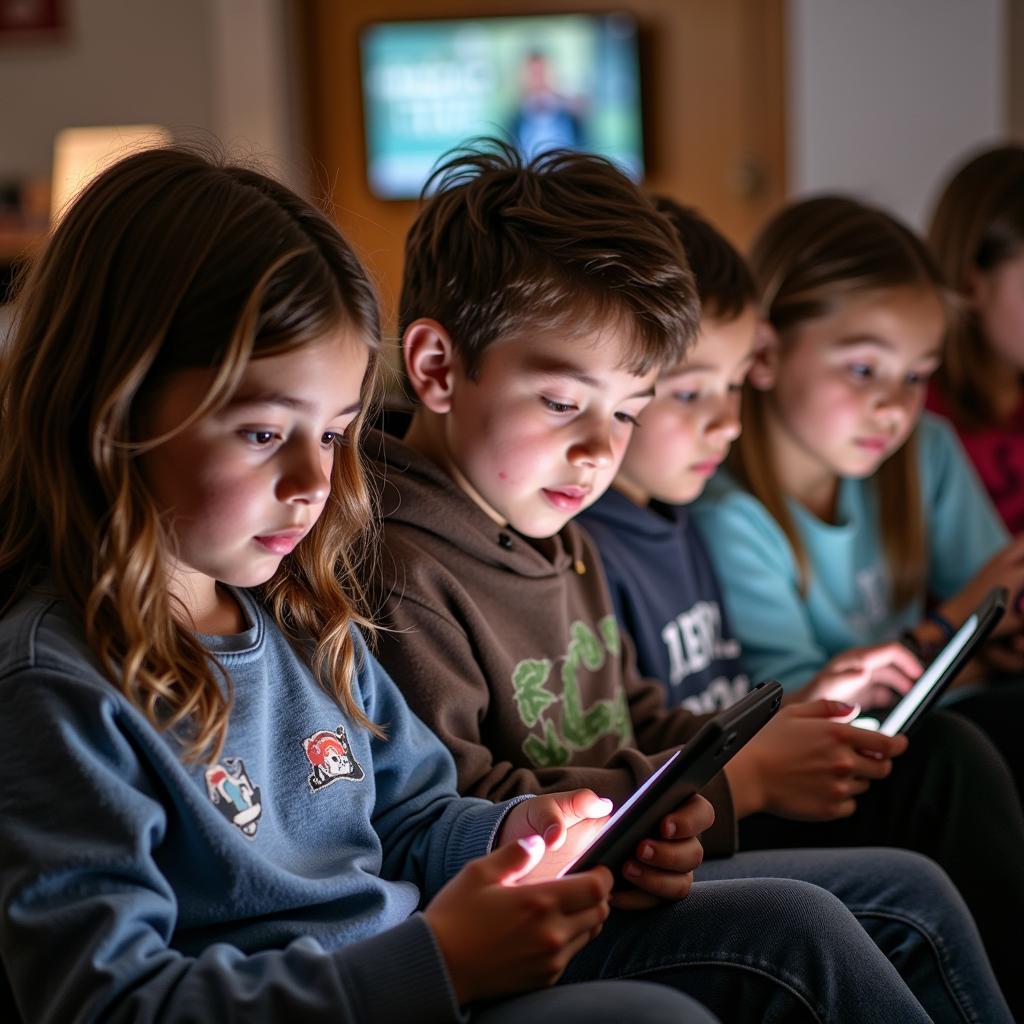Technology’s influence on children’s social skills has become a recurring theme in IELTS Writing Task 2, appearing in various forms across test versions globally. Based on analysis from major IELTS preparation websites and past exam databases, this topic has appeared approximately 3-4 times annually since 2019, particularly in Asian test centers. Similar to the effects of social media on academic performance, this subject remains highly relevant to contemporary social issues.

Analysis of Task 2 Question
Some people believe that modern technology is negatively affecting children’s ability to develop social skills. To what extent do you agree or disagree with this statement?
This question requires candidates to:
- Take a clear position on the impact of technology on children’s social development
- Support arguments with relevant examples and evidence
- Consider both positive and negative aspects
- Provide a balanced discussion while maintaining their stance
Sample Essay 1 (Band 8.0)
Technology’s influence on children’s social development has become a contentious issue, and while some argue it diminishes social skills, I partially disagree with this view as the reality is more nuanced.
Modern technology, when used appropriately, can actually enhance children’s social capabilities. Digital platforms provide innovative ways for young people to connect, collaborate, and develop new forms of social interaction. For instance, educational apps and online group projects teach children valuable skills in digital communication and virtual teamwork – competencies increasingly vital in our interconnected world. This relates to how technology influences parenting styles, as parents can guide children toward beneficial technological experiences.
However, excessive or unmonitored technology use can indeed impair traditional social skill development. Children who spend countless hours on solitary digital activities may miss crucial opportunities for face-to-face interactions, where they learn to interpret non-verbal cues and develop empathy. Studies have shown that effects of technology on children’s attention span can impact their ability to maintain sustained interpersonal conversations.
The key lies in finding the right balance. Parents and educators should implement structured approaches to technology use, ensuring children benefit from both digital and traditional social interactions. This balanced approach allows children to develop comprehensive social skills suited for both online and offline environments.
In conclusion, while technology can pose challenges to social development if misused, its impact largely depends on how it is implemented and managed. The solution lies not in limiting technology entirely, but in fostering its responsible use alongside traditional social interaction opportunities.
Sample Essay 2 (Band 6.5)
Modern technology has changed how children interact with others. While some people think it has a negative effect on children’s social skills, I partly agree with this idea.
First, technology can make children less social in real life. Many kids spend too much time playing games or watching videos alone instead of playing with friends outside. This means they don’t learn important skills like reading body language or having face-to-face conversations. For example, in my country, many children prefer chatting online rather than meeting friends in person.
However, technology can also help children be more social in some ways. Social media and online games let them connect with friends from different places and cultures. They can learn new ways to communicate and work together online. Should parents limit children’s screen time, they might restrict these valuable learning opportunities.
I think the answer is to find a good balance. Parents should make rules about using technology and encourage children to do both online and offline activities. This way, children can learn both traditional and modern social skills.
In conclusion, while technology can cause some problems with social skills, it’s not completely bad. The important thing is how we use it and teach children to use it properly.
Band Score Analysis
Band 8.0 Essay:
- Clear position with sophisticated arguments
- Excellent paragraph development
- Advanced vocabulary and complex structures
- Smooth transitions between ideas
- Well-developed examples
Band 6.5 Essay:
- Basic but clear position
- Simpler vocabulary and structure
- Less sophisticated examples
- Some repetition in ideas
- More basic linking words
Key Vocabulary
- contentious (adj) /kənˈtenʃəs/ – causing disagreement or debate
- nuanced (adj) /ˈnjuːɑːnst/ – characterized by subtle differences
- interpersonal (adj) /ˌɪntəˈpɜːsənl/ – relating to relationships between people
- comprehensive (adj) /ˌkɒmprɪˈhensɪv/ – complete; including all aspects
- implementing (v) /ˈɪmplɪmentɪŋ/ – putting into effect
- fostering (v) /ˈfɒstərɪŋ/ – encouraging the development of
- vital (adj) /ˈvaɪtl/ – absolutely necessary
- collaboration (n) /kəˌlæbəˈreɪʃn/ – working together
For practice, try writing your own essay response to this question and share it in the comments. Consider related topics like digital literacy, online learning, or social media’s impact on youth development.